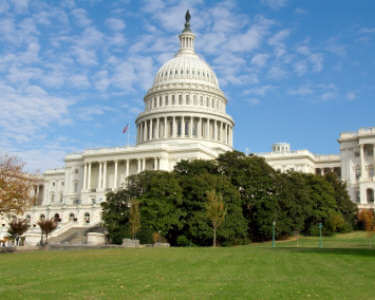
Just hours before the House passed health reform legislation Sunday in a history-making 219-212 vote, President Obama agreed to issue an executive order that would prohibit federal funding for elective abortions in accordance with the Hyde Amendment, which allows abortion funding in the cases of rape, incest or threat to the mother’s health. The order also would separate federal subsidies from private money in health plans that cover abortions and clarify that the new health care laws would protect hospitals, doctors and other providers that object to providing abortions as a matter of conscience.
Stupak said because of the agreement, “there will be no public funding for abortion in this legislation.” After the deal was announced, pro-life Democrat Rep. Marcy Kaptur of Ohio said the health bill was “actually a bill about life,” National Public Radio reported.
“No longer will any woman have to wonder whether she can bring a child to term because she can’t afford it,” Kaptur said. “The provisions in this bill that have to do with maternal health care, child health care, preventive care, the adoption credits that were included in the bill take us to a new day in America.”
But Republican lawmakers and conservative pro-life advocates say the executive order is not enough to prevent public funding for abortion in the health care bill. They argue that it does not have the force of law that legislation would provide and can easily be revoked.
“There is no way that an executive order will protect the unborn or prevent the greatest expansion of elective abortion since Roe v. Wade,” Family Research Council President Tony Perkins said in a statement. “Pro-life lawmakers would be making a serious mistake to trust those who have repeatedly attempted to mislead the American people into believing that abortion is not in the bill.”
House Minority Leader John Boehner said in a statement Sunday that an executive order “can direct members of the executive branch, it cannot direct the private sector.”
“Because of Roe v. Wade, courts have interpreted the decision as a statutory mandate that the government must provide federal funding for elective abortion through federal programs,” he said. “In other words, no executive order or regulation can override a statutory mandate unless Congress passes a law that prohibits federal funding from being used in this manner.”
Republican Sen. Sam Brownback of Kansas said executive orders are added and removed constantly and change with successive presidents. “If the Democrats were serious about avoiding federal funding of abortion, they would put it in the bill and subject it to a vote as opposed to using sleight of hand to cobble together a one-party coalition to pass a government takeover of over one-sixth of our economy costing over $938 billion while not lowering insurance premiums at all,” Brownback said.
However, pro-life leaders who supported health care reform said the legislation would help reduce abortions. They say having access to health care will deter some women from having abortions, and the legislation includes a $250 million provision to support prenatal, postnatal and adoption incentives.
“For decades I have worked hard for both justice for the poor and for protection for the unborn because I believe the Bible teaches us both that God and God’s people have a special concern for the poor and also that God calls us to respect the sanctity of all human life, including the unborn,” said Ronald J. Sider, president of Evangelicals for Social Action and
author of Rich Christians in an Age of Hunger. “This bill is a huge leap forward on all of that because a truly pro-life stance does not start at conception and end at birth. It means respecting the sanctity of human life for all of a person’s life.”












































